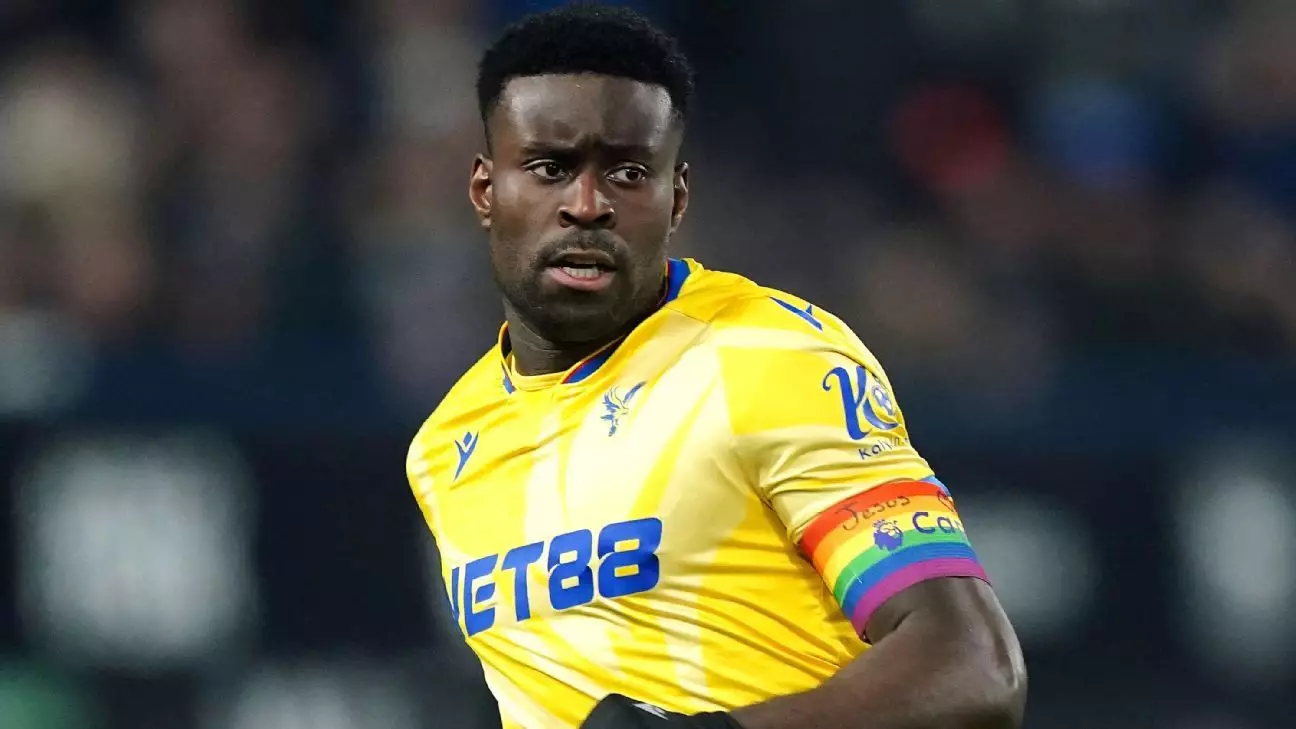In an increasingly diverse world, the intersection of faith and social issues often sparks debate. This was exemplified when Marc Guéhi, a defender for Crystal Palace, inscribed “Jesus loves you” on his rainbow-colored captain’s armband during a match against Ipswich Town. Despite being reminded by England’s Football Association (FA) about their regulations on religious messages, Guéhi’s act drew attention not only for its contents but also for its timing, as it coincided with the Premier League’s support for the LGBTQ+ community, represented through the Rainbow Laces campaign.
The FA has been diligent in enforcing its kit and advertising regulations, particularly Rule A4, which prohibits any religious or political messages on clothing during matches. Guéhi’s earlier message, “I love Jesus,” went unpunished, but the reminder from the FA highlighted a more critical approach towards religious messages in a context specifically created for promoting inclusivity. It raises questions about the balance between personal convictions and institutional policies that aim to create a uniform, inclusive environment in professional sports.
Guéhi’s choice to express a Christian sentiment on an armband meant to represent LGBTQ+ solidarity can be perceived as an affront to the very cause the armband champions. This gesture may symbolize an underlying conflict between religious beliefs and the principles of inclusivity that many organizations are striving to uphold. Given that the rainbow armbands were introduced to foster unity and support for the LGBTQ+ community, Guéhi’s inscription could be seen as contradictory, thereby complicating its intended message.
The reactions to Guéhi’s actions have been mixed within the football community. On one hand, his expression of faith resonates with many who feel that personal beliefs should be honored. On the other, there’s discomfort among those who advocate for an unambiguous show of support for marginalized communities. Ipswich midfielder Sam Morsy, who chose to wear a traditional black armband instead of the rainbow variant, also serves as a testament to the complicated nature of navigating faith and social issues in professional sports. His situation falls outside FA scrutiny, emphasizing that the governing body allows personal discretion on such matters.
This controversy underscores broader societal tensions that permeate the world of sports—tensions that reveal the challenges athletes face when their personal beliefs intersect with societal expectations. As sports continue to evolve into platforms for social justice, the question remains: how can organizations cohesively integrate individual beliefs while promoting inclusivity? As for Guéhi, his choice ignites discussions that could shape how sports organizations handle such sensitive intersections in the future.
Ultimately, the events surrounding Marc Guéhi’s rainbow armband reflect a significant moment in football that challenges players, clubs, and the governing bodies to reevaluate their stance on religious expression within an increasingly participatory and diverse landscape.

